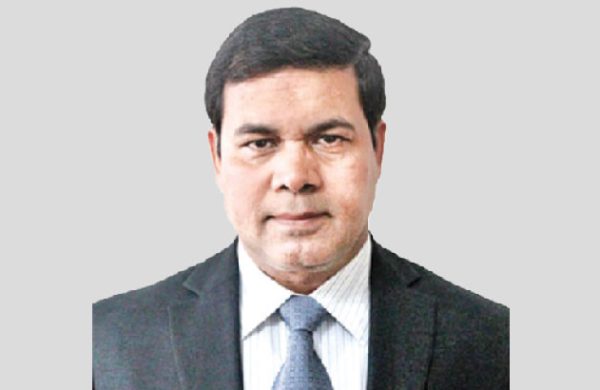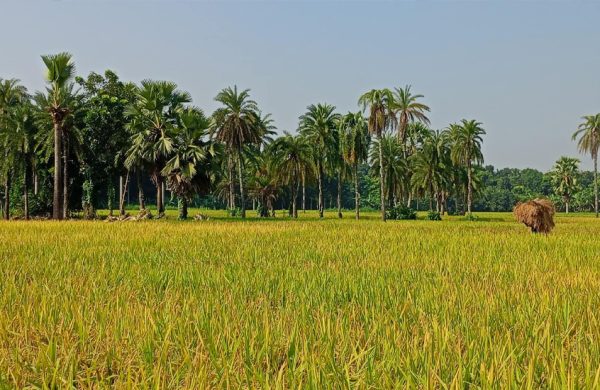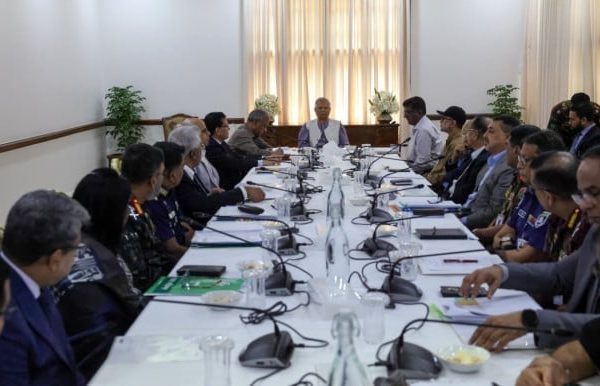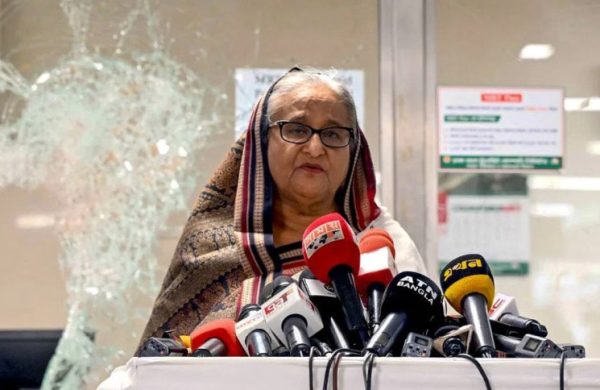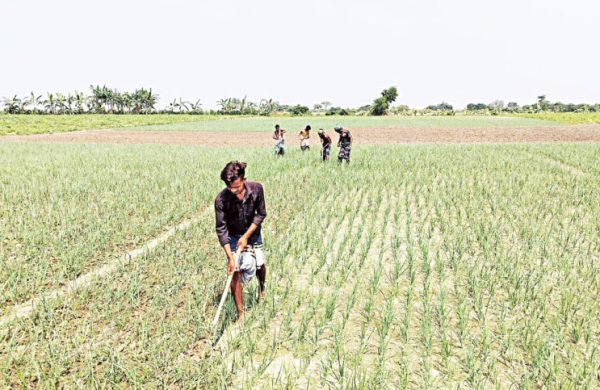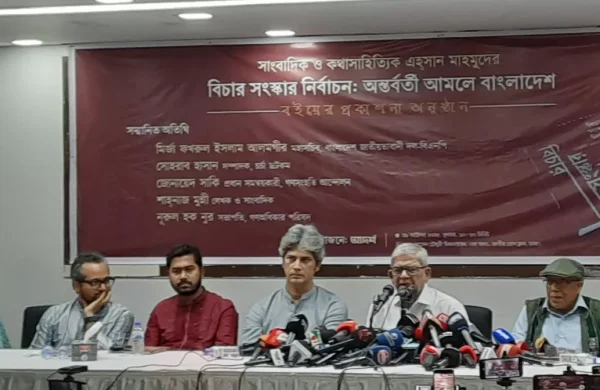Pak–Afghan Tensions, Historical Roots and Uncertain Road Ahead
- Update Time : Tuesday, October 28, 2025
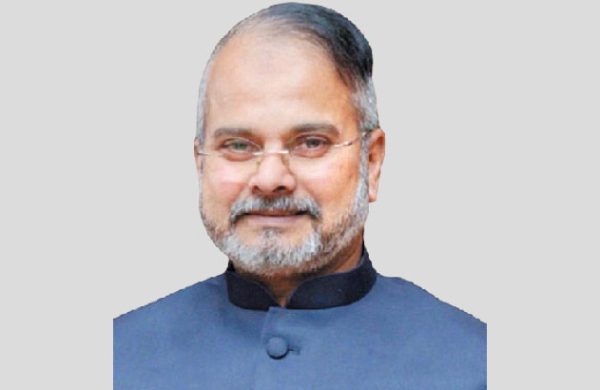
—HRM Rokan Uddin—
The relationship between Pakistan and Afghanistan has been a most complex and volatile one in South Asia.
It is a relationship defined by mistrust, overlapping ethnic identities, ideological divergence and geopolitical manoeuvring.
The recent border clashes, diplomatic rifts, and accusations over terrorism have again brought this uneasy relationship into global focus.
What we are witnessing today is not an isolated episode of hostility, but the continuation of a historical pattern rooted in territorial disputes, conflicts of national interests and regional power politics.
In recent months, tensions have escalated sharply along the Durand Line, the border that separates Pakistan and Afghanistan.
The Pakistan Army and Taliban forces have exchanged fire in several sectors, particularly in Khost, Paktia and Chaman-Spin Boldak regions.
Islamabad accused the Afghan Taliban government of facilitating the Tehrik-i-Taliban Pakistan (TTP), an insurgent group accused of attacking Pakistan’s police and civilians. Kabul, on the other hand, accuses Pakistan of repeated border violations, arbitrary deportations of Afghan refugees, and interference in its internal affairs.
This new phase of confrontation has pushed bilateral relations to their lowest point since the Taliban’s return to power in August 2021.
To understand this deteriorating situation, one must look back at history. Pakistan and Afghanistan have never embarked on a stable relationship since the very birth of Pakistan in 1947.
Afghanistan was the only country to oppose Pakistan’s admission to the United Nations, primarily over its refusal to recognise the Durand Line as the official border.
The line, drawn in 1893 between British India and Afghanistan, divided the Pashtun tribal areas, leaving millions of ethnic Pashtuns inside Pakistan’s territory.
Since independence, Kabul’s ruling elites have periodically invoked the idea of “Pashtunistan,” a separate homeland for Pashtuns, which Islamabad has always perceived as a direct threat to its territorial integrity.
During the Cold War, Pakistan’s relationship with Afghanistan became a reflection of global ideological struggles.
While Afghanistan under King Zahir Shah and later Daoud Khan tried to maintain a non-aligned or pro-Soviet stance, Pakistan emerged as a key US ally.
The Soviet invasion of Afghanistan in 1979 marked a turning point. Pakistan became the frontline state for the US-led proxy war against the Soviet Union.
Millions of Afghan refugees crossed the border into Pakistan, and the Inter-Services Intelligence (ISI) became the primary channel for arming and financing the Afghan Mujahideen.
While this era elevated Pakistan’s global importance, it also sowed the seeds of long-term instability.
The rise of the Taliban in the mid-1990s brought a new but short-lived alignment between Islamabad and Kabul. Pakistan was one of only three countries—along with Saudi Arabia and the UAE—to recognise the Taliban regime in 1996.
The Taliban provided Pakistan with strategic depth against India and a friendly buffer on its western border. However, after 9/11, this relationship turned upside down. Pakistan officially joined the US-led “War on Terror” and supported military operations against the Taliban and al-Qaeda, while elements within the Pakistani establishment continued to maintain covert ties with the Taliban for strategic reasons.
This policy of “double game” eventually backfired, creating distrust with both Washington and Kabul.
When the Taliban retook power in 2021 following the US withdrawal, Pakistan initially celebrated it as a diplomatic victory. Islamabad hoped that a Taliban-led Afghanistan would curb anti-Pakistan elements, especially the TTP.
But the opposite happened. The Taliban government, ideologically close to the TTP, has refused to act decisively against them.
The TTP has found safe havens inside Afghanistan, launching cross-border attacks into Pakistan’s Khyber Pakhtunkhwa and Balochistan provinces. This has reignited Pakistan’s internal insurgency problem.
Adding to the tension is the issue of Afghan refugees. Pakistan has hosted over three million Afghans for decades, but the burden has become politically and economically untenable. In late 2024, Islamabad began a controversial deportation campaign, ordering all undocumented Afghan refugees to leave the country.
This move angered Kabul, which called it “inhumane” and accused Pakistan of collective punishment. The forced repatriation created humanitarian distress and further strained ties between the two neighbours.
Another dimension to this conflict is the regional power rivalry. Pakistan views Afghanistan through the lens of its security concerns vis-à-vis India.
Islamabad accuses New Delhi of trying to use Afghan soil to destabilise Pakistan, particularly in Balochistan. Conversely, Afghanistan resents Pakistan’s attempts to dictate its foreign policy or use the Taliban as a proxy to secure its own strategic interests.
The current phase of hostility carries dangerous implications for the entire region. For Pakistan, the resurgence of TTP terrorism could destabilise its internal security.
For Afghanistan, any prolonged confrontation with Pakistan would further isolate it internationally and worsen its economic despair.
There remains a window for reconciliation despite these tensions. Both sides need to recognise that hostility serves neither nation’s long-term interests.
Pakistan must rethink its policy of strategic manipulation and instead engage Afghanistan through cooperation in different fields.
The Taliban government, on its part, must also extend the promise that Afghan soil will not be used against Pakistan.
The international community, especially China, Turkey, and the Gulf states, could play a mediating role by encouraging dialogue and economic integration between the two nations.
Ultimately, the Pakistan–Afghanistan relationship is a test of whether both countries can transcend the ghosts of history and forge a new path based on mutual respect.
———————————————————————–
The writer is a retired Brigadier General, ex-military diplomat and author







